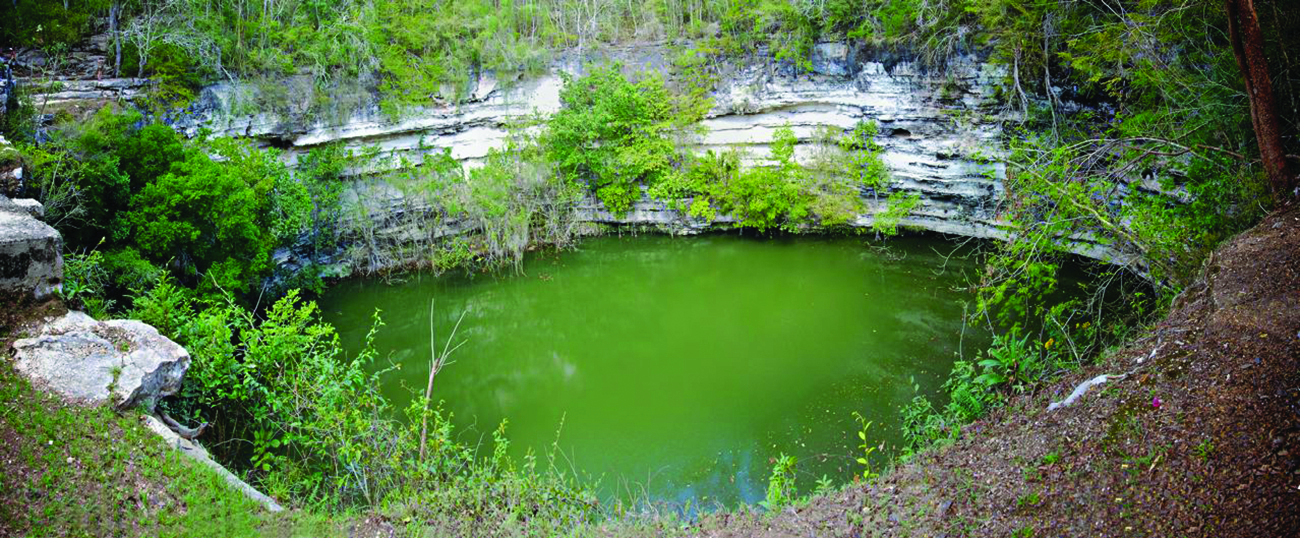82 Introduction
Chapter Outline
14.1 Brønsted-Lowry Acids and Bases
14.2 pH and pOH
14.3 Relative Strengths of Acids and Bases
14.4 Hydrolysis of Salt Solutions
14.5 Polyprotic Acids
14.6 Buffers
14.7 Acid-Base Titrations

Liquid water is essential to life on our planet, and chemistry involving the characteristic ions of water, H+ and OH−, is widely encountered in nature and society. As introduced in another chapter of this text, acid-base chemistry involves the transfer of hydrogen ions from donors (acids) to acceptors (bases). These H+ transfer reactions are reversible, and the equilibria established by acid-base systems are essential aspects of phenomena ranging from sinkhole formation ((Figure)) to oxygen transport in the human body. This chapter will further explore acid-base chemistry with an emphasis on the equilibrium aspects of this important reaction class.

